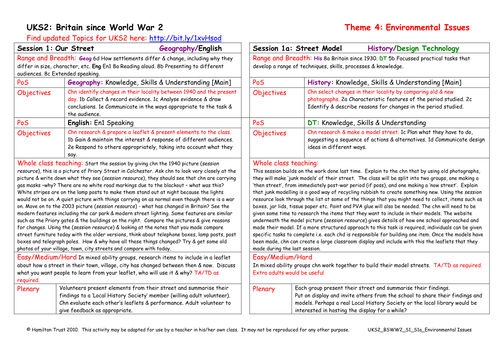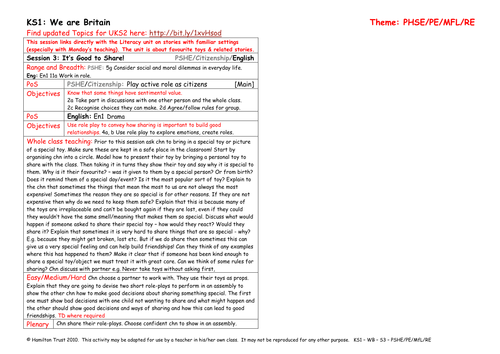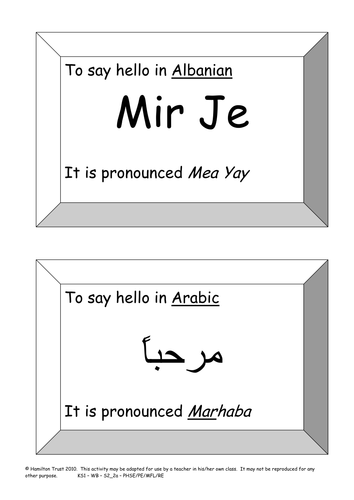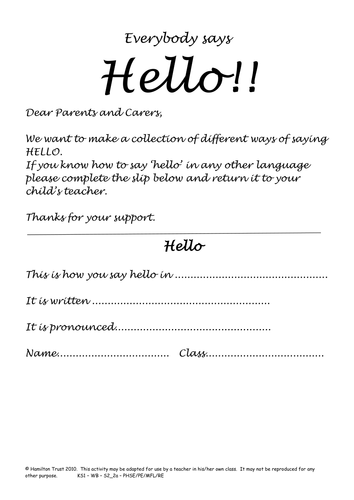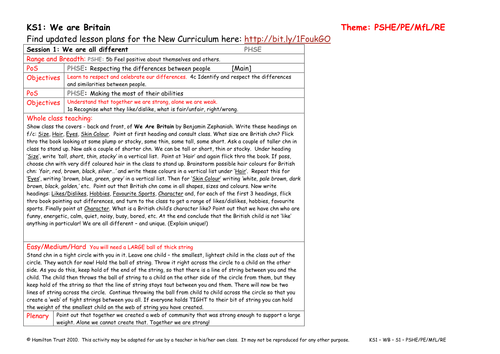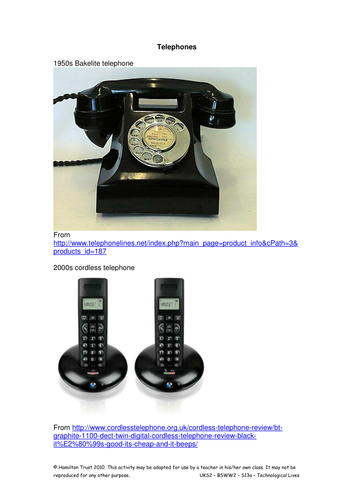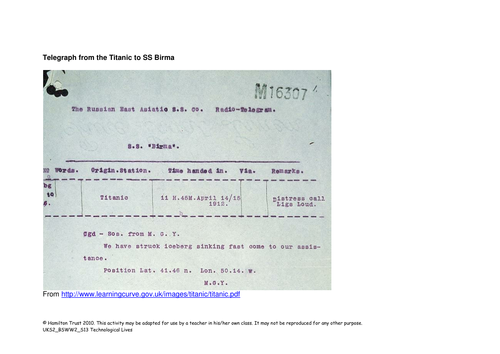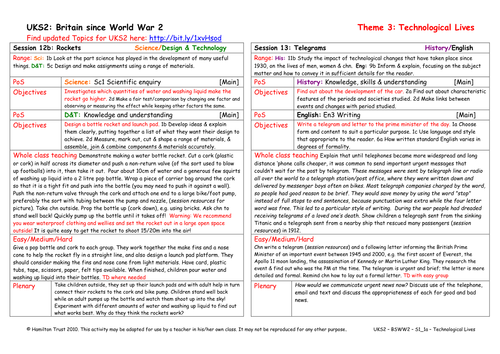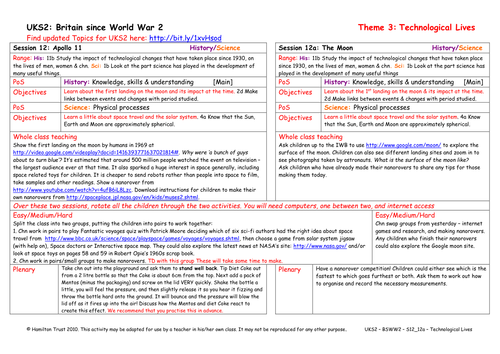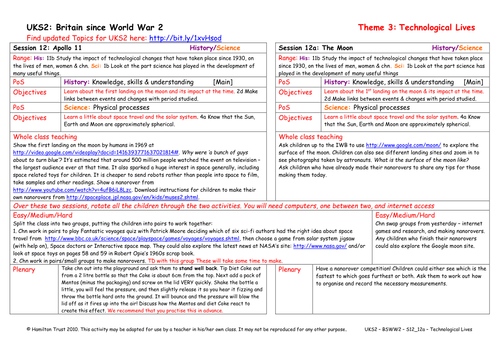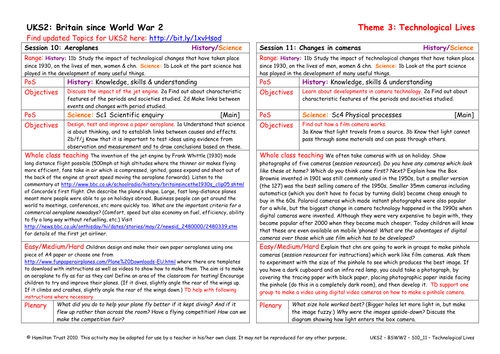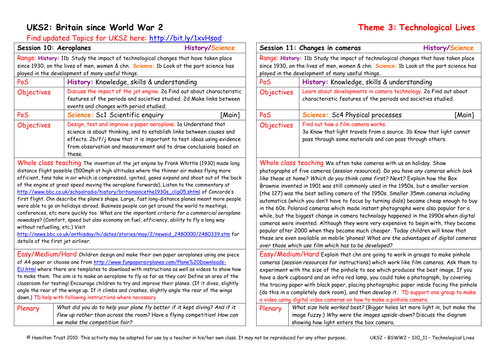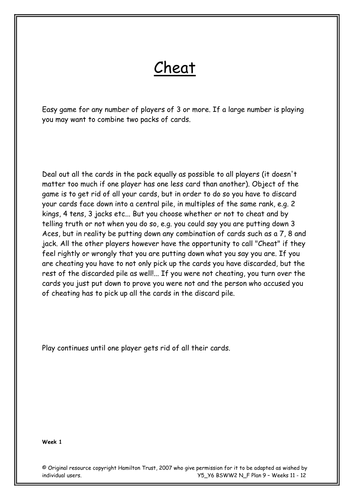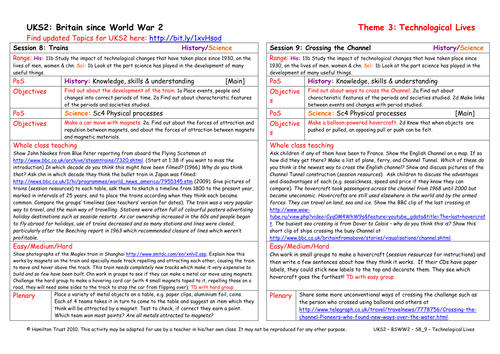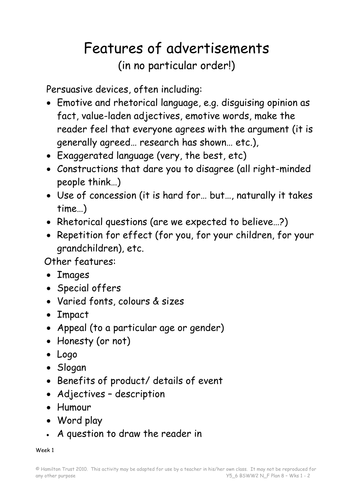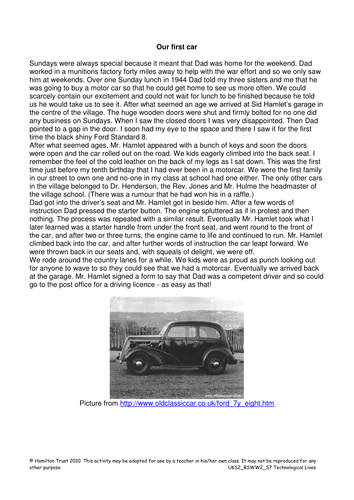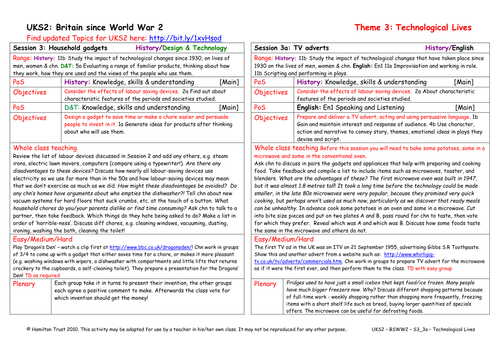
397Uploads
10041k+Views
11644k+Downloads
All resources

Street Model
Building on previous session, children make a model of a street near the school (or from imagination). Class is split in two – one group make a ‘then’ model and one a ‘now’ model – using junk modelling techniques. Display along with leaflets previously made.

Tumble Driers
Children find out how a tumble drier works, list the advantages and disadvantages of tumble driers and then have a debate about whether they are a good or bad thing!

Learning new ways to say Hello
Learn another circle game and then find out lots of different ways to say hello. Practice saying hello making good eye contact. Work as part of a group to make a ‘hello’ flag. Teach the new hello to the rest of the class.

We All Say Hello
Play circle games to practice greeting each other confidently. How many ways do children know to say hello in a different language? Learn 3 new ways.

We are all different
Children explore the idea stemming from ‘We Are Britain’ that there is no one image or character a of British person. We come in all shapes and sizes, colours and creeds. A splendid activity makes the point that united we make strong communities.

Telephones
Children order pictures of old telephones. They decode, then write mobile ‘phone text messages.

Telegrams
Children look at old telegrams and then write their own about an important event to the British Prime Minister of the day.

Rockets
Demonstrate a water rocket to children, they then make their own, adding fins, nose cone and design a launch pad.

The Moon
Children explore the surface of the moon using a website, carry out the activity they didn’t do in session 12, then have a nanorover race.

Apollo 11
Children watch the first manned landing on the moon, then build a nanorover or play online games about space travel.

Changes in Cameras
Children look at cameras from different decades and then make a pinhole camera, experiment to see which size pinhole works best.

Aeroplanes
Children look at different aeroplanes, make paper aeroplanes and then see which flies the furthest.

Instructions and Explanations Weeks 11 - 12
Wake-up to the 21st century with instructions for computer games, mobile phones and explanations for blogs and podcasts.
Children write a booklet for their granny, giving instructions and explanations to fit her for life in 2010!

Trains
Children look at trains from different ages, then try to make a moving vehicle using magnets, then have a competition involving choosing magnetic metal objects.

Persuasive language Weeks 1 - 2
Identify persuasive features used in adverts. Study adverts over the decades since the end of World War 2 in detail. Children create a paper advert about an exhibition related to the Topic. They then plan and present a TV or radio advert for a modern appliance.

History of Cars
Children listen to a memoir of an elderly person's first car and then look at modern day car brochures looking for features which are new, and write a list of features they would like to see in future cars.

The Festival of Britain
Children watch TV footage and research the festival of Britain. They make a postcard of their favourite part and write a message on the back about what they liked.

TV Adverts
Children look at kitchen gadgets and early TV adverts and then work in groups to make up an advert for the first microwave, then act it out for the rest of the class.

Household Gadgets
Children discuss labour-saving gadgets and chores which are still time-consuming or unpleasant. They then work in groups to design their own gadget and present it to the rest of the class as in the Dragon’s Den.

Children discuss the advantages and disadvantages of texting and emails, then write an email with attachments to an email ‘pen pal’ about their favourite session from this topic.

